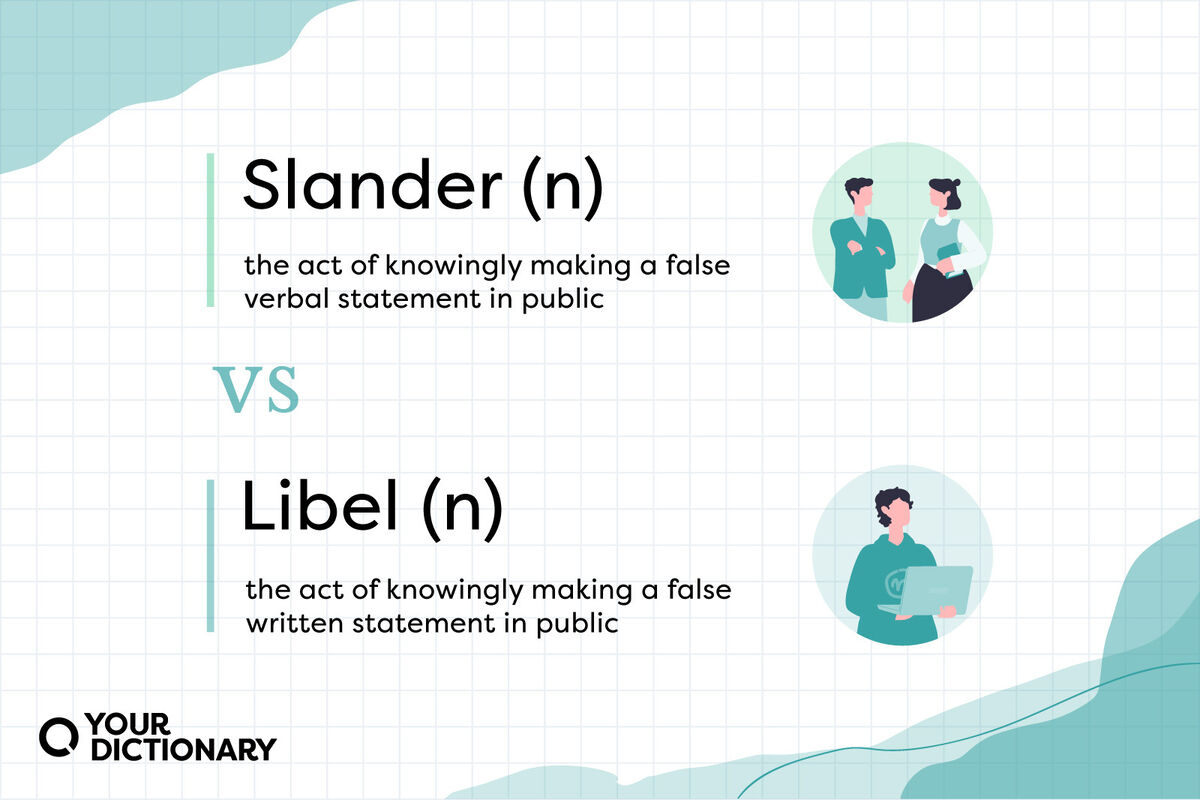
Defamation involves the spread of false information that causes injury to a person’s reputation, potentially contributing to larger effects like losing a job. The way that the misinformation spreads can make it either slanderous or libelous, and the main difference between the two has to do with the medium.
The Difference Between Slander and Libel: Spoken vs. Written
While slander and libel are often used interchangeably, they have specific legal definitions:
- slander (n) - the act of knowingly making a false verbal statement in public
- libel (n) - the act of knowingly making a false written statement in public
Both words can also be used as verbs when referring to the action of defaming someone. When describing actions as a type of defamation, you can use the adjectives slanderous and libelous.
Tip To Tell Libel and Slander Apart
As they are so closely related, libel and slander can be easy to mix up because they both generally refer to lying. To remember which is which, keep in mind that slander and spoken both start with “s.” Thus, slander is spoken, while libel is not.
Examples of Slander
Slander comes from the Old French word esclandre, meaning “scandalous statement.” Conversationally, slander is often used in general reference to lies or the act of lying. This is a bit more lighthearted than the legal definition, typically related to gossiping or spreading rumors.
- He said I don’t like donuts? The slander!
However, actual slander is meant to cause harm or hurt another person. Along with historic examples of slander, everyday forms of slander may include:
- Lying to prevent a former employee from getting a job
- Claiming that a restaurant purposely served food with spoiled ingredients, which results in the restaurant being closed
- Saying that you are the victim of a crime that didn’t occur, leading to an investigation into an innocent person
- Accusing someone of having an affair, resulting in their spouse leaving them
- Saying that someone is neglecting their children, which causes their children to be taken away
Examples of Libel
Libel comes from the Latin word libellus, which refers to “a small book, pamphlet or written report,” as well as “a general legal charge or claim.” Its associations with defamation didn’t exist until the 1600s.
Some scenarios involving libel include:
- Writing a letter to the editor that wrongly accuses a neighbor of a crime, resulting in them being investigated by police
- Posting a blog entry about a classmate cheating on a test, causing them to lose a scholarship
- Printing a news story about a political figure with incorrect facts, damaging their standing in the polls
- Creating a poster that accuses an ex-spouse of withholding child support when they haven’t, causing the court to look into garnishing their wages
- Posting a rumor on social media about a colleague that leads them to lose their job
Consequences of Defamation
Libel has historically been seen as more serious than slander. Libel is decidedly more tangible as the false statement appears in print, writing or pictures, making it easier to prove. Slander is intangible as it comprises speech and gestures that can be difficult to keep a record of.
The exact legal consequences of slander and libel depend on the situation and the opinion of the court. Most commonly, slanderous or libelous statements may result in a lawsuit or jail time.